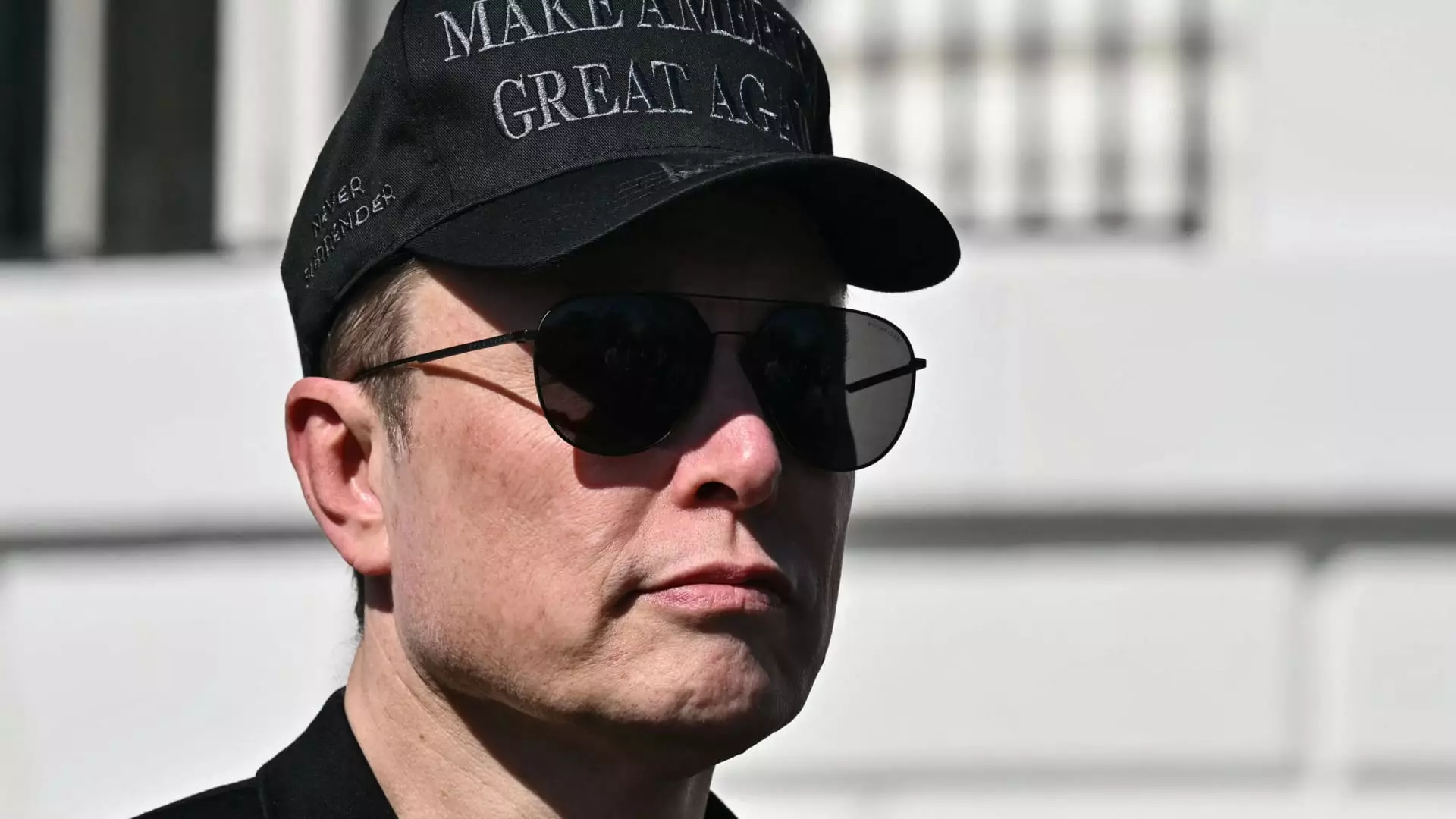Elon Musk, the billionaire entrepreneur known for his transformative projects from Tesla to SpaceX, is currently embroiled in a complex legal battle that could have far-reaching implications. A court summons was delivered to him last week in relation to a lawsuit filed by the Securities and Exchange Commission (SEC), centering around allegations that Musk failed to disclose significant stock purchases in Twitter (now X) prior to his infamous bid to buy the platform for $44 billion in 2022. The details of this event reveal not only the intricacies of SEC regulations but also paint a vivid picture of Musk’s often unconventional approach to business practices.
On March 14, a process server sought to deliver this civil summons at SpaceX’s headquarters in Brownsville, Texas. However, in a scene that could have come straight out of a corporate thriller, Musk was evasive; three security guards turned away the documentation, leading the server to abandon the delivery on the ground. This drama underscores the tensions that often characterize Musk’s interactions with regulatory entities. His approach has historically been one of resistance and bravado, yet now he finds himself face-to-face with the regulatory frameworks he has previously skirted.
Regulatory Oversight and Implications
The crux of the SEC’s complaint lies in Musk’s alleged failure to disclose that he owned over 5% of Twitter shares, a threshold that triggers a legal obligation to report ownership. According to the SEC, Musk delayed this disclosure by more than ten days, which ultimately allowed him to purchase shares at a lower rate, essentially circumventing a loss of at least $150 million. This scenario raises key questions about the integrity of financial disclosures and the competitive playing field within the stock market. Are the rules in place adequately serving to maintain fairness, or do they need a reconsideration in the rapidly evolving landscape shaped by tech entrepreneurs?
What is particularly striking about this case is Musk’s history with the SEC. In 2018, he faced civil securities fraud charges linked to misleading statements made on Twitter regarding Tesla’s potential privatization, prompting a settlement that required him to pay a $20 million fine and step down from his position as chairman of Tesla’s board. These past experiences contribute to a narrative in which Musk is seen not just as a pioneer, but as a figure who has frequently clashed with the regulatory apparatus designed to maintain market order.
The Political Context
Musk’s relationship with power extends beyond mere business maneuvers; it intertwines with political landscapes as well. After acquiring Twitter, he leveraged the platform to amplify Republican voices, particularly those of then-candidate Donald Trump. The intertwining of Musk’s business interests and political affiliations brings an additional layer of scrutiny to this legal battle. The Trump administration itself has taken several steps to weaken the SEC, including budget cuts and policy reversals that embolden figures like Musk. This context complicates the public’s perception of whether Musk is a victim of overreach or a benefactor of a system that is becoming increasingly lax on powerful players.
As the deadline for Musk and his legal team to respond to the SEC’s allegations looms, it will be interesting to see whether his defense strategy will mirror his past tendencies of public defiance or if he will pivot to a more conciliatory approach, aiming to mitigate the damages to both his personal brand and his businesses. The stakes are high, and the world watches as one of modernity’s most contentious figures stands on the precipice of a potential legal reckoning.
A Broader Commentary on Corporate Accountability
Ultimately, this ongoing saga forces a broader conversation about corporate accountability in the tech space. With figures like Musk often bending traditional norms, the implications for future regulation and enforcement are profound. If he emerges unscathed from this legal battle, what message does that send about the treatment of individuals who operate at this stratospheric level? Conversely, a more stringent sentiment could prompt a reconsideration of the rules that govern corporate governance and responsibility.
While Musk’s approach often attracts admiration for its audacity, it also raises critical questions about the balance of power between innovators and regulators. As the trial unfolds, it becomes increasingly clear that this case is not merely about one man; it is about the very future of business ethics in an age defined by disruption and innovation.


Leave a Reply